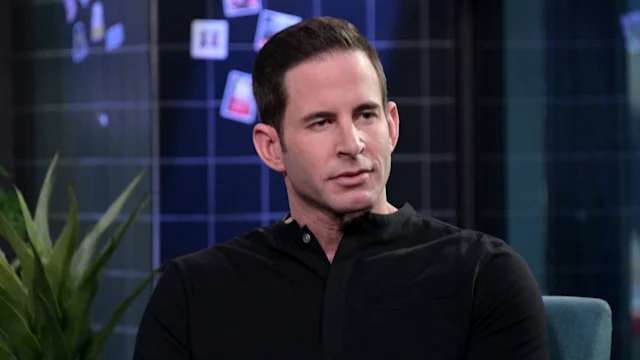Parenting is a profound, lifelong journey. It’s one filled with triumphs, challenges, shared values, and, ultimately, inevitable transitions. One such transition, empty nest syndrome, often catches parents off guard. Coupled with the emotional difficulty of children rejecting their familial faith, this period can feel overwhelming. But it doesn’t have to be. With understanding, self-care, and resilience, it’s possible to not only move forward but also rediscover personal and spiritual fulfillment.
This blog explores how parents can adapt to an empty nest while navigating the complex emotions tied to faith rejection. By the end, you’ll have practical strategies to maintain relationships, rediscover purpose, and strengthen your faith during this life chapter.
What Is Empty Nest Syndrome?

Empty nest syndrome refers to the emotional distress and feelings of loss that parents experience when their children leave home, typically for college, work, or to begin their own lives. It’s more than just a quiet home; it often feels like a shift in identity. Many parents find themselves asking, “What’s my role now?”
When combined with the challenge of children rejecting or moving away from their parents’ faith, the emotional impact intensifies. Parents may experience grief, confusion, or feelings of failure, often questioning where they went wrong. This unique combination of experiences can be isolating—but it’s not insurmountable.
Why Is Faith Rejection Particularly Difficult?

Faith is deeply personal, often shaped by familial roots and passed down across generations. When a child rejects this shared belief system, it can feel like a rejection of a core part of their upbringing. This can deepen feelings of loss and create emotional distances within familial relationships.
But it’s important to remember that rejection of faith doesn’t equal rejection of love or family. Beliefs evolve, just as individuals do. Parents must balance their emotional reactions with respect for their children’s autonomy.
Addressing the Emotional Impact

The transition to an empty nest and the rejection of shared faith are both grief processes. Recognizing and addressing these emotions is key to moving forward.
Acknowledge Your Feelings
It’s crucial to validate your emotions. Perhaps you feel sadness, frustration, anger, or even a sense of failure. This is natural. Ignoring or suppressing these feelings can do more harm than good. Journaling, acknowledging your feelings in prayer, or speaking with a trusted friend can create emotional clarity.
The Importance of Self-Care
Taking care of yourself lays the foundation for healing. A few ways to practice self-care include:
- Physical health: Regular exercise, proper nutrition, and sleep can boost your mood.
- Mental health: Consider support groups or counseling to help process your emotions.
- Social connections: Spend time with friends, relatives, or others who support you unconditionally.
Self-care isn’t selfish. It allows you to regain balance and show up as the best version of yourself.
Spiritual Coping Strategies

Faith can be a pillar of strength during difficult times. These spiritual coping strategies can help you find solace and perspective.
Prayer and Meditation
Spending time in prayer or meditation can help you center your thoughts and seek guidance. You might pray for your child, for wisdom to foster understanding, or for peace in your own heart. Meditation adds a layer of mindfulness, allowing you to sit with your emotions without judgment.
Engage with Faith-Based Communities
Faith-based communities can provide perspective, support, and encouragement. Whether through a congregation, small group, or mentorship program, these connections remind you that you are not alone. Many others have experienced similar trials and found ways to overcome them.
Consider discussing your challenges with your spiritual leader. They may offer wisdom or recommend community resources that can enrich this stage of life.
Maintaining Relationships with Your Children

Navigating strained or changing relationships with your children is a challenge, but it’s also an opportunity for growth. These strategies can help maintain a strong bond.
Practice Open Communication
Fostering open and honest conversations is vital. Ask questions about their beliefs and values without judgment or defensiveness. Active listening is key. This process helps build trust and mutual understanding.
Example starting points:
- “I’m curious about your perspective. Would you share more with me?”
- “I’d love to understand how you arrived at your current views.”
Accept Their Choices
Love and acceptance are critical, even when your child’s choices differ from your hopes or expectations. Acceptance doesn’t mean compromising your beliefs; it means honoring their right to make decisions about their own life.
Remember, relationships thrive on mutual respect, not forced conformity.
Create New Traditions
Adapting family traditions can be a powerful way to maintain connection. If faith-based traditions feel strained, consider creating new secular traditions that reflect shared interests or activities.
Redefining Purpose and Meaning

An empty nest presents an opportunity to invest in personal growth and redefine what’s meaningful to you.
Explore New Hobbies or Interests
Have you been putting off a personal goal or passion? Now is the time to pursue it. Whether it’s painting, hiking, learning a new language, or joining a book club, new hobbies can add excitement and fulfillment to your days.
Community Engagement
Volunteering within your local community or at your place of worship can bring immense satisfaction. Acts of service can deepen your sense of purpose and strengthen your connection with like-minded individuals who share your values.
Spiritual Growth
Take this opportunity to deepen your own spiritual practices. Attend workshops, read inspiring literature, or join discussion groups to further explore your own faith.
People Also Ask
What helps empty nest syndrome?
Practicing self-care, staying socially connected, and discovering new hobbies can alleviate the emotional impact of an empty nest.
How do I handle a child rejecting faith?
Focus on open communication, accept their choices respectfully, and maintain a loving, supportive relationship.
Can faith help during emotional transitions?
Yes, spiritual practices like prayer, meditation, and engaging with faith communities can provide strength and comfort.
Building a Meaningful New Chapter
Transitions are natural, but that doesn’t make them easy. Both empty nest syndrome and faith rejection test your resilience, self-awareness, and adaptability. Yet, they also present opportunities for growth, discovery, and renewal.
Take this time to redefine your purpose, forge meaningful relationships, and find joy in both old and new aspects of life. Remember, every chapter closes for another to begin, and with faith—even a redefined one—you can make this next chapter incredibly fulfilling.
Want more guidance? Explore our resources on coping with faith rejection and rediscovering purpose. You’re not alone, and the best days are still ahead.



